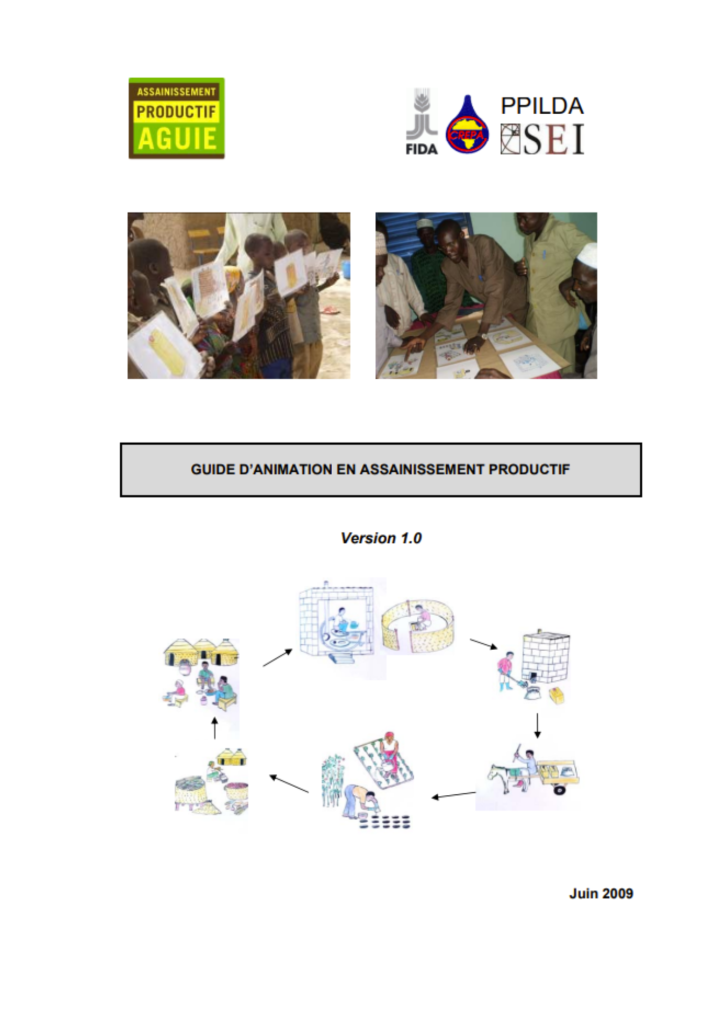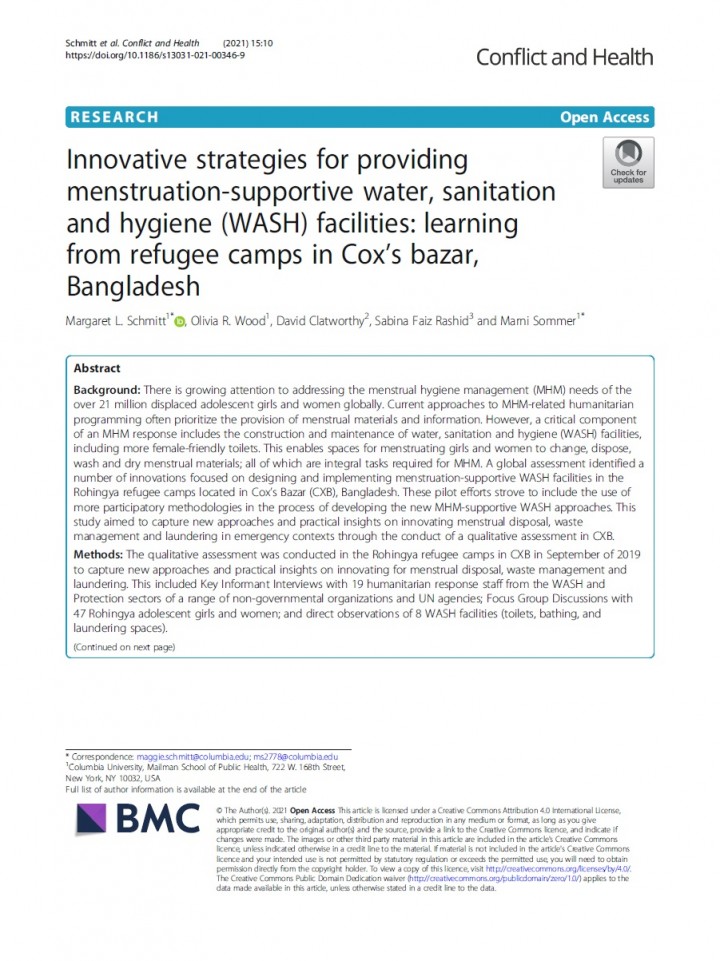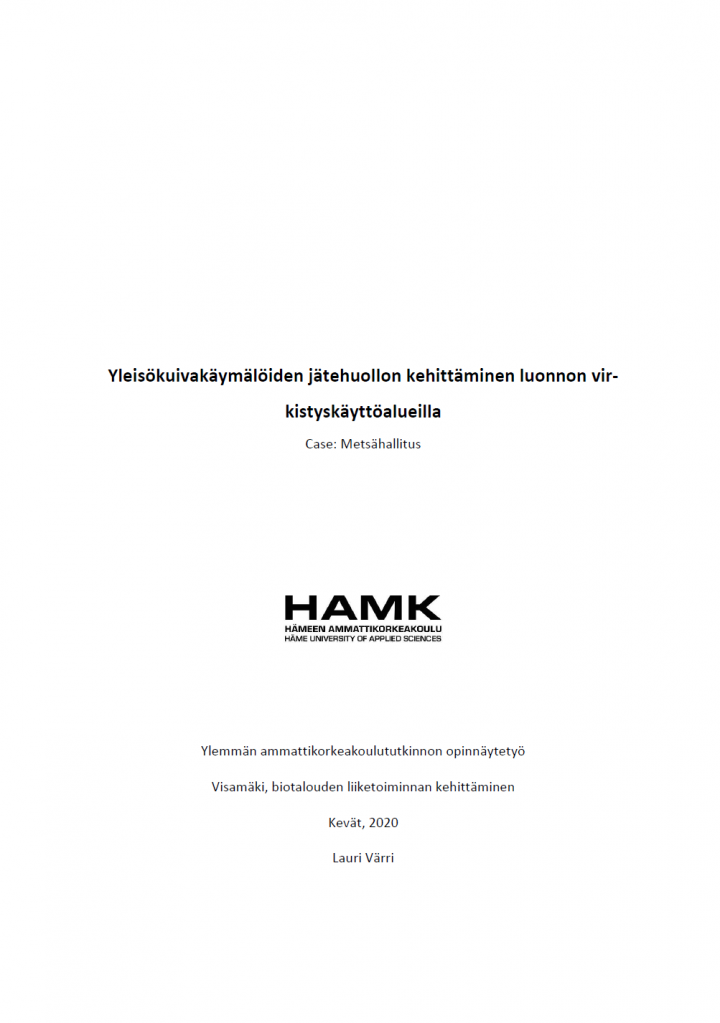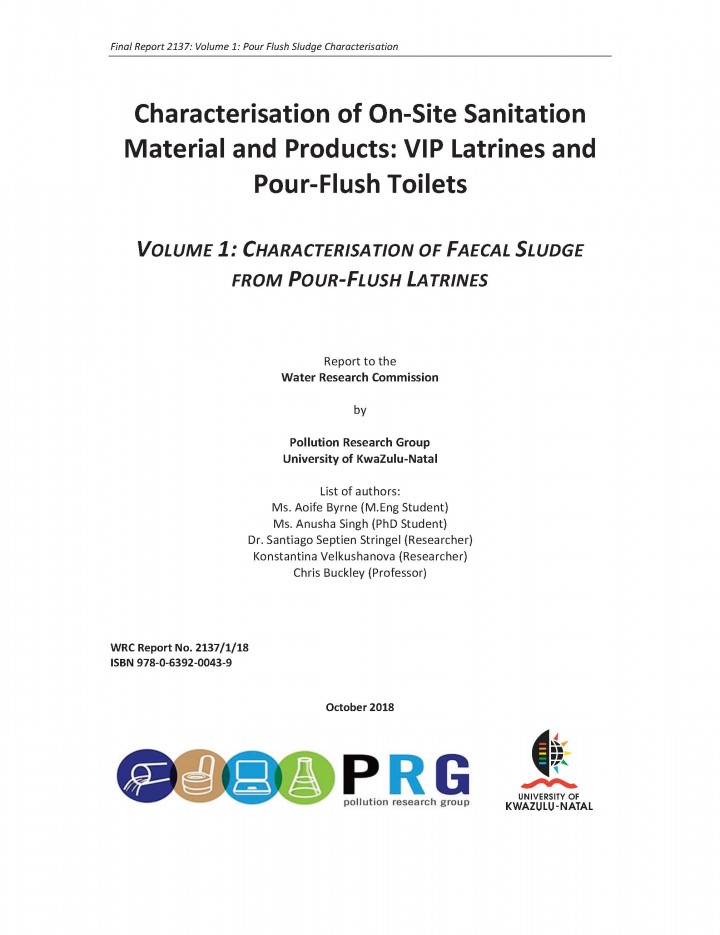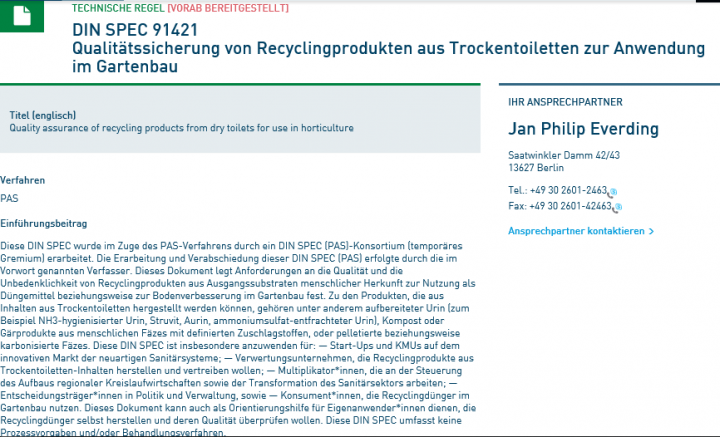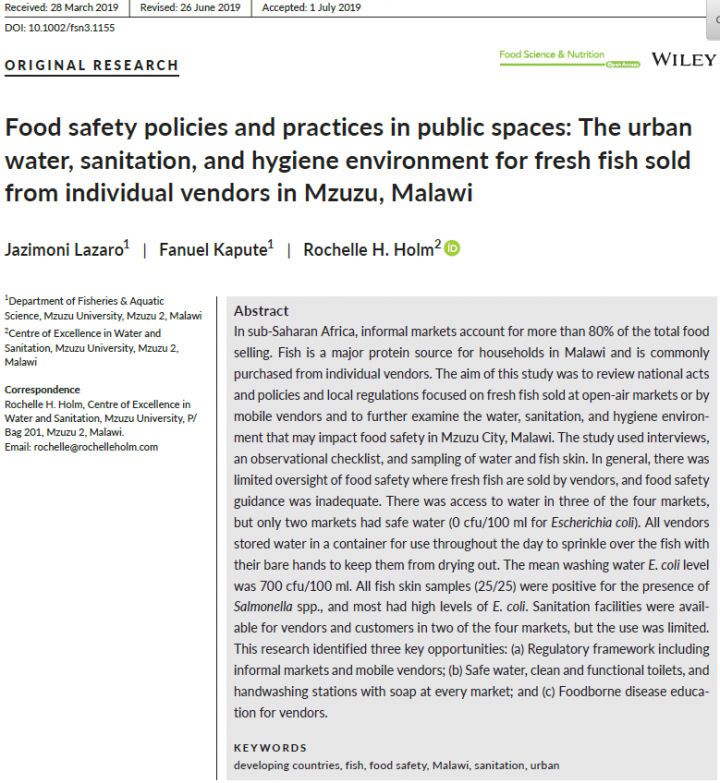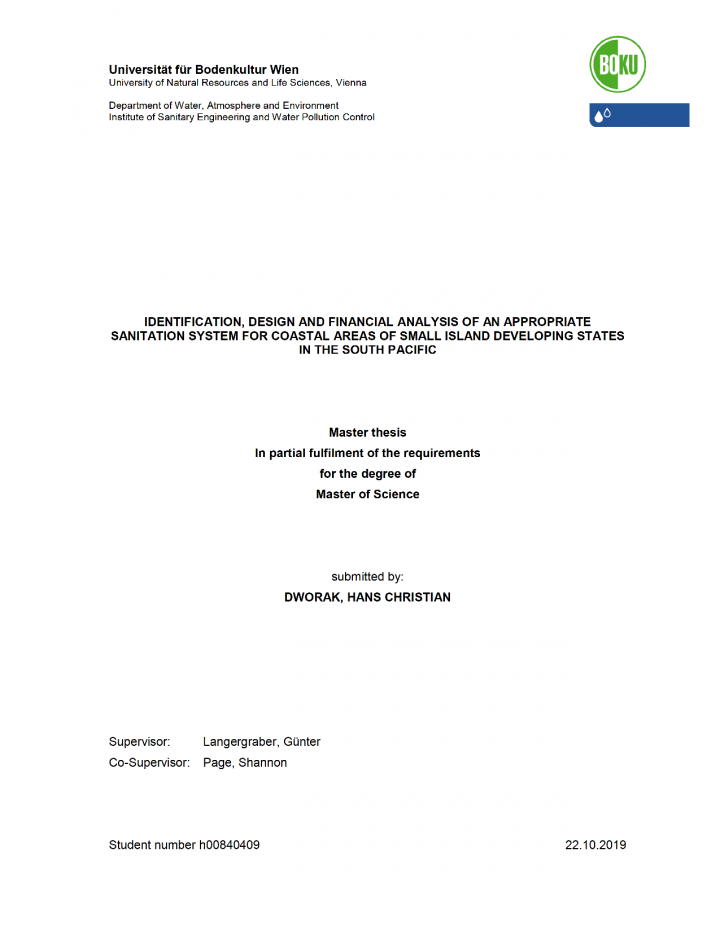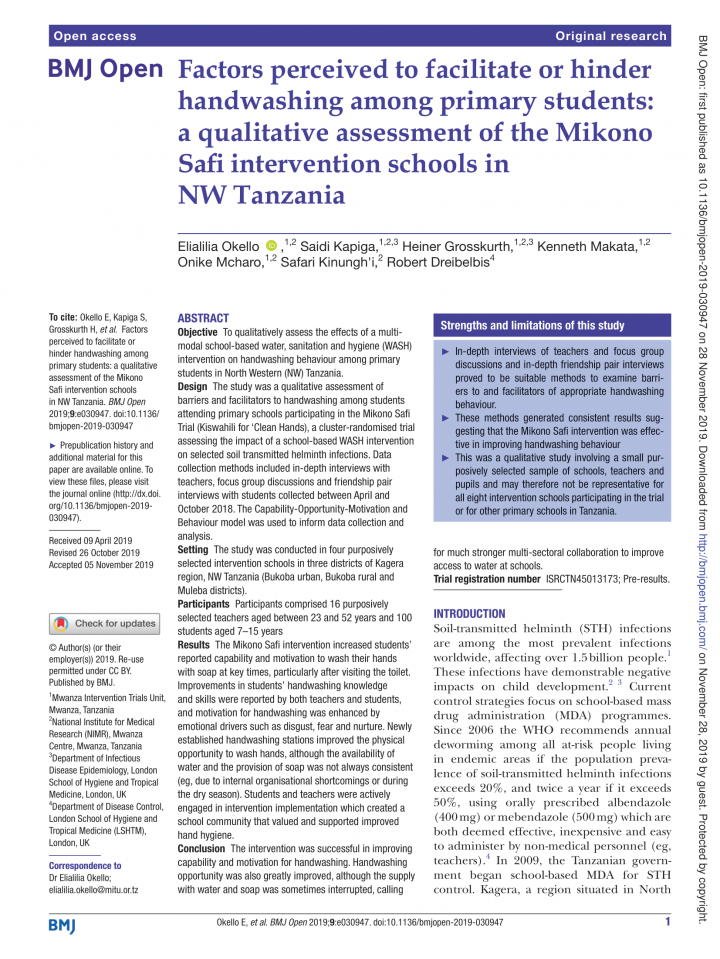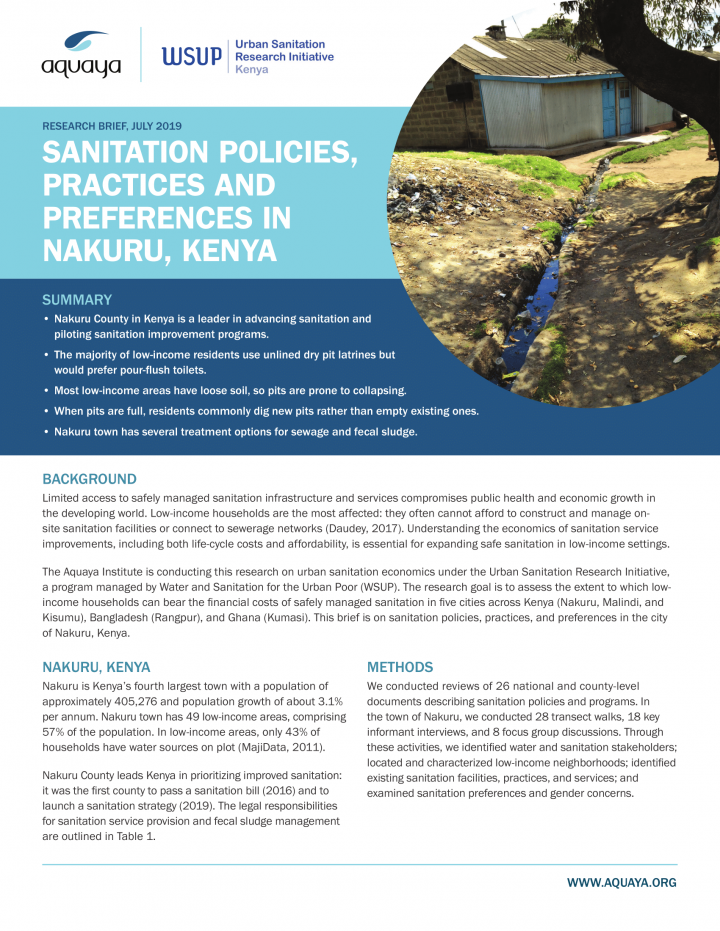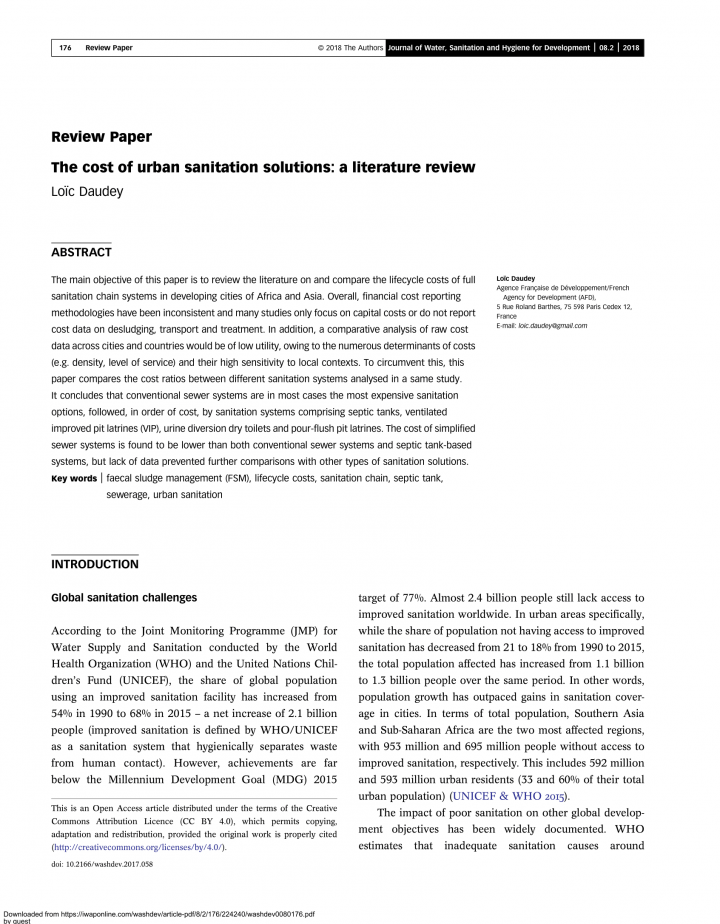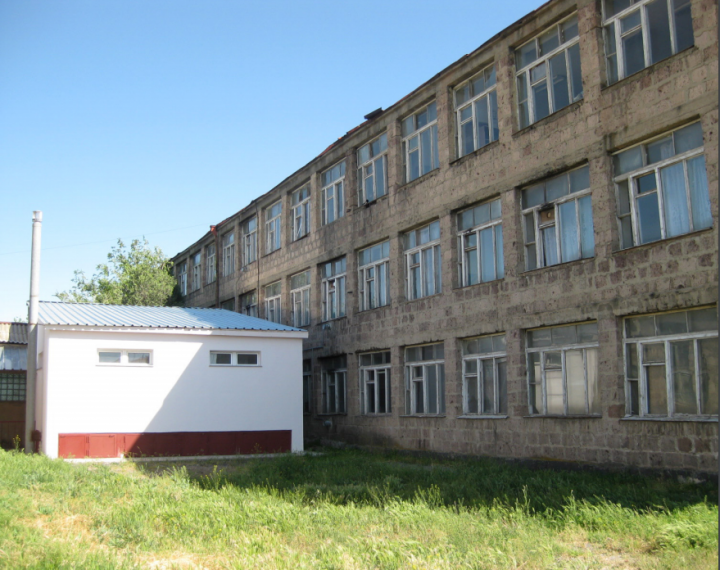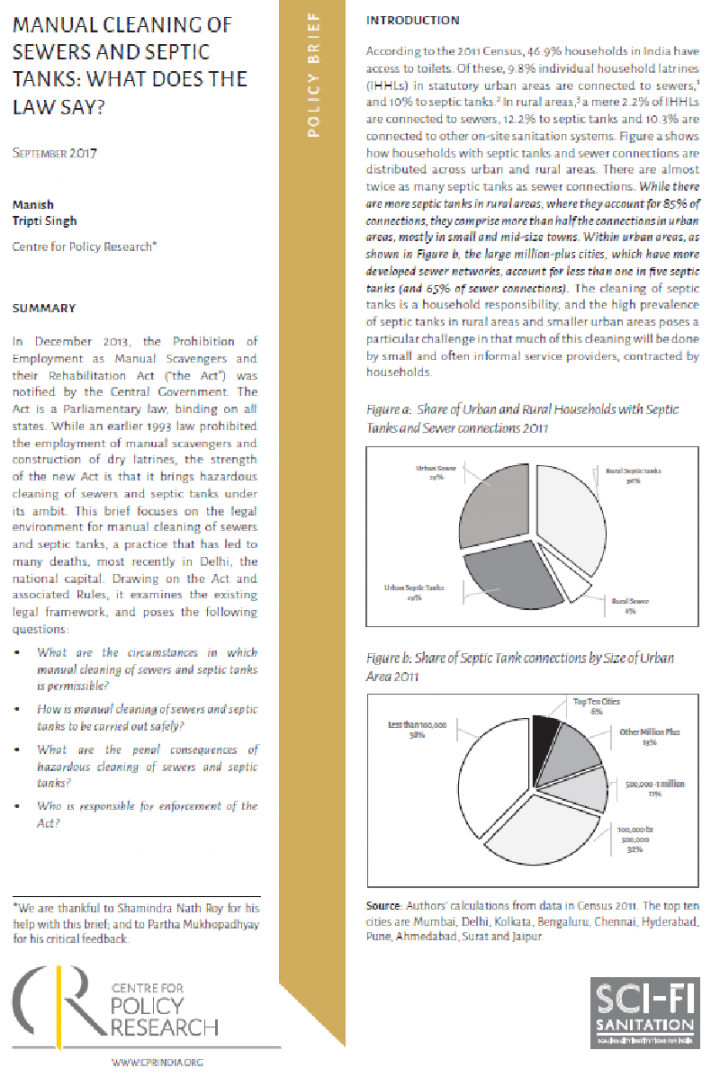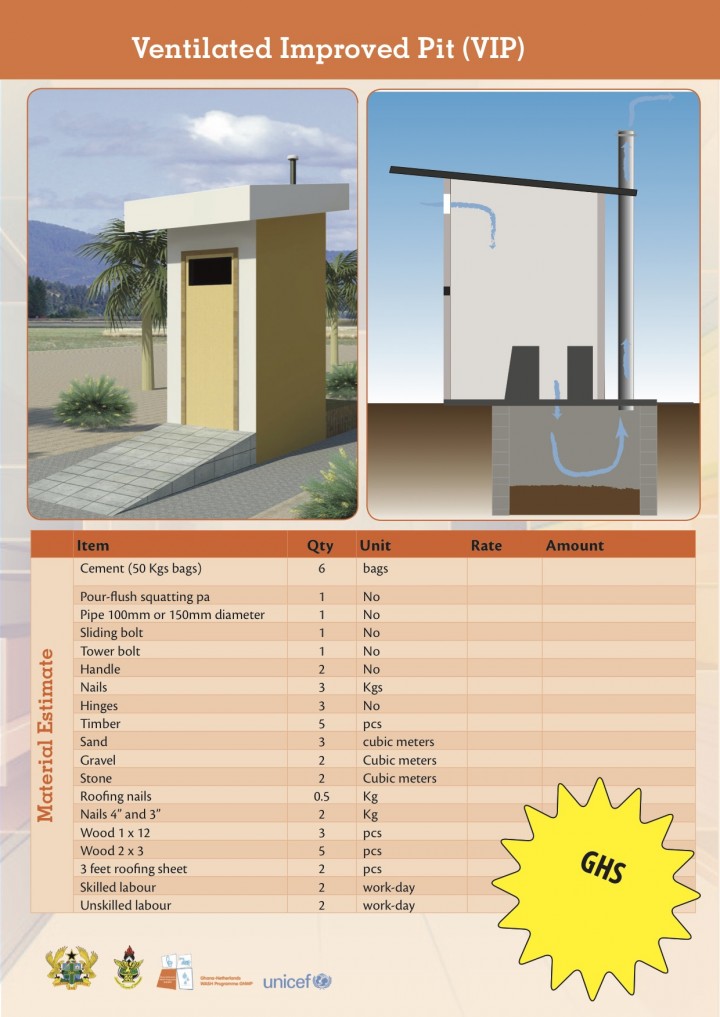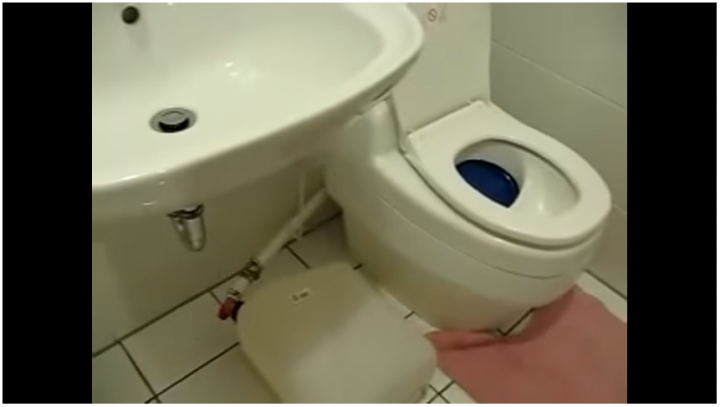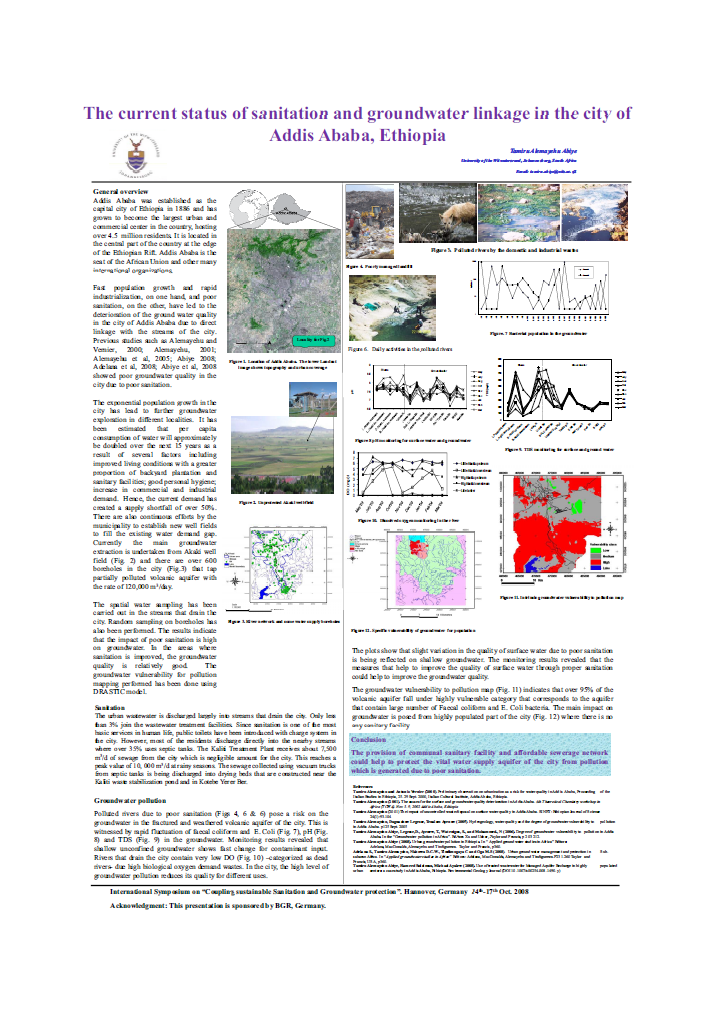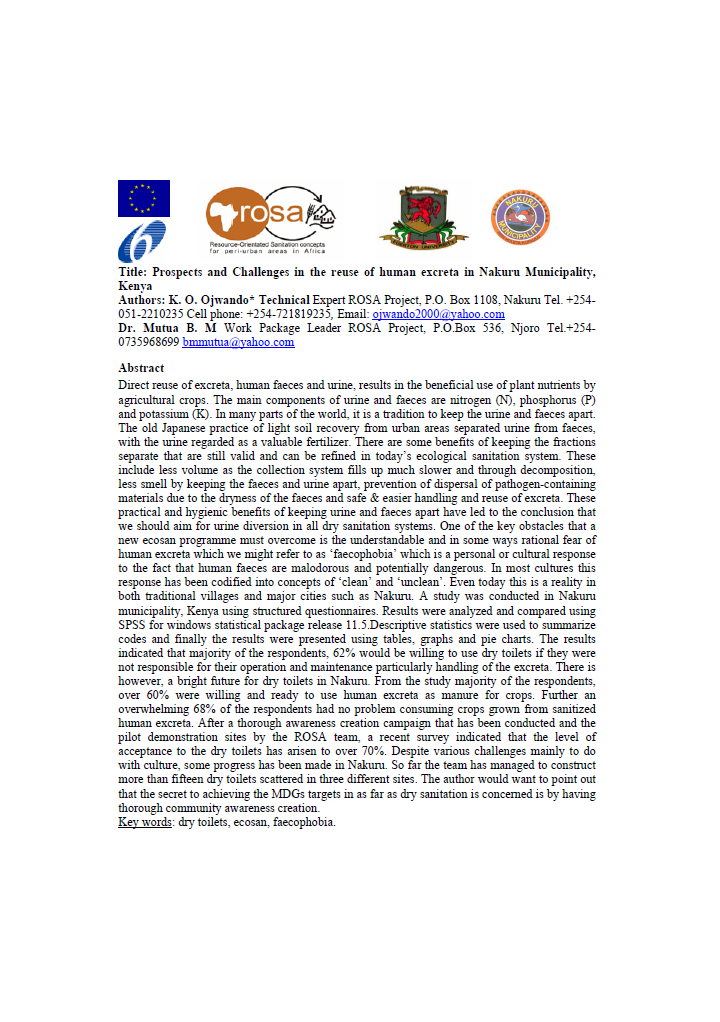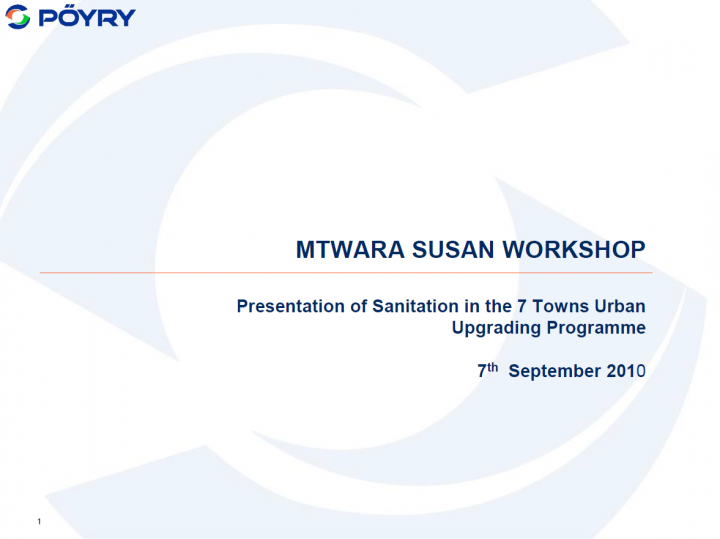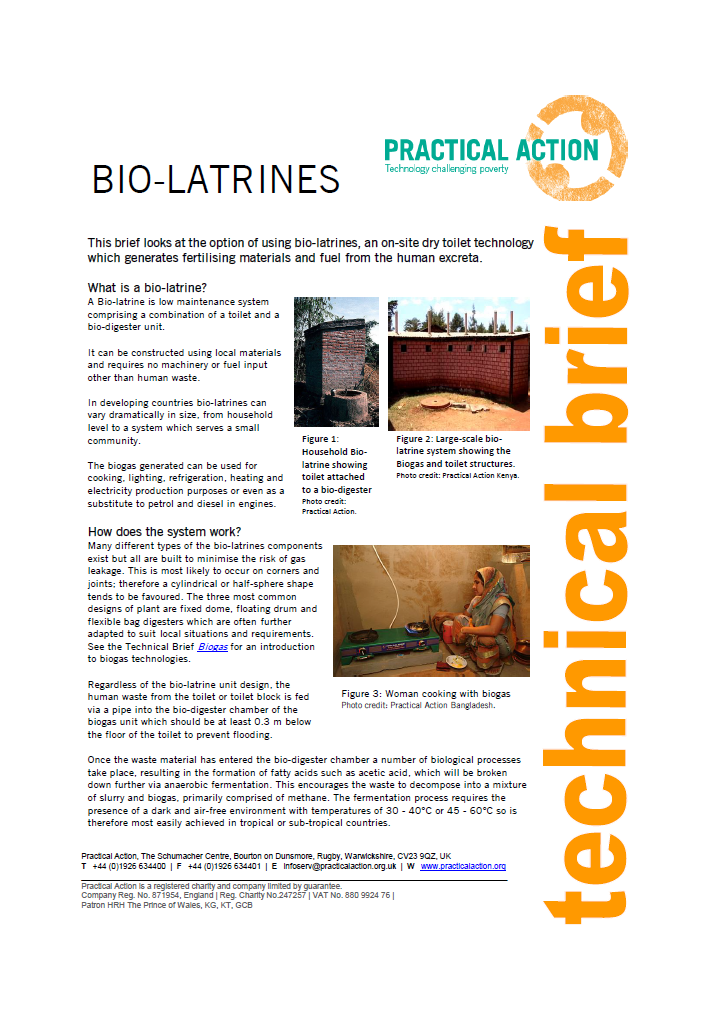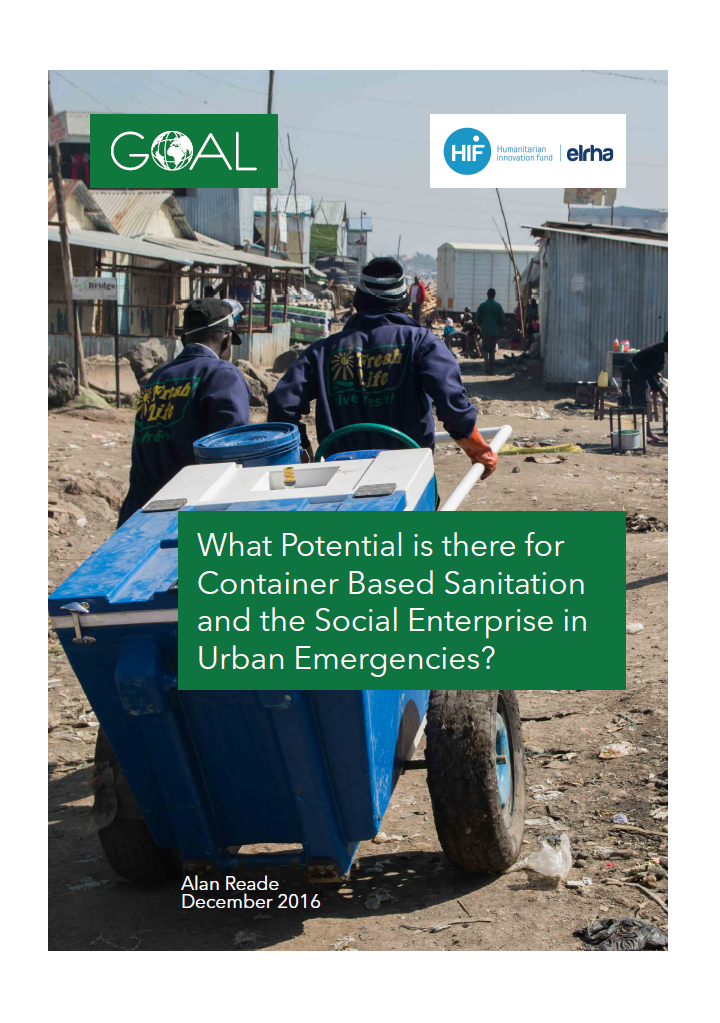PPILDA (Projet de Promotion de l’Initiative Locale pour le Développement à Aguié) (2009) Guide d’animation en Assainissement Productif Version 1.0 – Outil pour la formation et l’accompagnement communautaire
This practical guide was developed to support community facilitators and field animators in promoting productive sanitation practices in rural areas of Niger. Building on the PHAST (Participatory Hygiene and Sanitation Transformation) methodology, it provides participatory tools to help communities understand the health risks of poor excreta management and the agricultural value of hygienized urine (Takin Ruwa) and feces (Taki Busasché). The document explains the construction, […]
Schmitt, M.L., Wood, O.R., Clatworthy, D., Rashid, S. F., Sommer, M. (2021) Innovative Strategies for Providing Menstruation-Supportive Water, Sanitation and Hygiene (WASH) Facilities: Learning from Refugee Camps in Cox’s Bazar, Bangladesh
There is growing attention to addressing the menstrual hygiene management (MHM) needs of the over 21 million displaced adolescent girls and women globally. Current approaches to MHM-related humanitarian programming often prioritize the provision of menstrual materials and information. However, a critical component of an MHM response includes the construction and maintenance of water, sanitation and hygiene (WASH) facilities, including more female-friendly toilets. This enables spaces […]
Värri, L. (2020) Yleisökuivakäymälöiden jätehuollon kehittäminen luonnon virkistyskäyttöaluei (in Finnish) - Development of public dry toilet waste management in recreational wilderness areas, Case: Metsähallitus
Dry toilets are one of the basic services provided for visitors in recreational wilderness areas. Operational environment for toilet waste management in these areas is challenging. At the same time the growing number of visitors in recreational areas is increasing the stress and loading on service infrastructure etc. toilets. The objective of this study was to recognize the major challenges in toilet waste management in […]
Byrne, A., Mirara, S. W., Singh, A., Septien, S., Velkushanova, K., Buckley, C. A. (2018) Final report WRC project K5/2137: Characterisation of On-Site Sanitation Material and Products: VIP Latrines and Pour-Flush Toilets (Volume 1 and 2 available)
This report from a research project funded by the Water Research Commission is divided into 2 volumes. Volume 1: In South Africa, the Pour-Flush system is viewed as an upgrade from the Ventilated Improved Pit latrine (VIP), which is the standard for basic sanitation in the country. PID successfully ran a pilot scheme involving the installation of approximately 25 Pour-Flush latrines in the greater Edendale area (Slangspruit, […]
DIN SPEC (PAS) (2020) Quality assurance of recycling products from dry toilets for use in horticulture (German) DIN SPEC 91421:2020-12 - Qualitätssicherung von Recyclingprodukten aus Trockentoiletten zur Anwendung im Gartenbau
Diese DIN SPEC wurde im Zuge des PAS-Verfahrens durch ein DIN SPEC (PAS)-Konsortium (temporäres Gremium) erarbeitet. Die Erarbeitung und Verabschiedung dieser DIN SPEC (PAS) erfolgte durch die im Vorwort genannten Verfasser. Dieses Dokument legt Anforderungen an die Qualität und die Unbedenklichkeit von Recyclingprodukten aus Ausgangssubstraten menschlicher Herkunft zur Nutzung als Düngemittel beziehungsweise zur Bodenverbesserung im Gartenbau fest. Zu den Produkten, die aus Inhalten aus Trockentoiletten […]
Lazaro, J., Kapute, F., Holm, R. H. (2019) Food safety policies and practices in public spaces: The urban water, sanitation, and hygiene environment for fresh fish sold from individual vendors in Mzuzu, Malawi
In sub‐Saharan Africa, informal markets account for more than 80% of the total food selling. Fish is a major protein source for households in Malawi and is commonly purchased from individual vendors. The aim of this study was to review national acts and policies and local regulations focused on fresh fish sold at open‐air markets or by mobile vendors and to further examine the water, […]
Dworak, H. C. (2019) Identification, Design and Financial Analysis of an Appropriate Sanitation System for Coastal Areas of Small Island Developing States in the South Pacific - Master Thesis
Rural coastal areas of Small Island Developing States in the South Pacific are often characterized by high groundwater tables, flood proneness and scarce freshwater resources. Thin and permeable soil layers featuring a limited unsaturated zone make the groundwater lens below these islands highly vulnerable to microbiological and chemical contamination. The prevalent sanitation systems (i.e. Single Pit; Dry and Pour-Flush Latrine) may cause serious degradation of […]
Okello E., Kapiga, S., Grosskurth, H., Makata, K., Mcharo, O., Kinungh'i, S., Dreibelbis, R. (2019) Factors perceived to facilitate or hinder handwashing among primary students: a qualitative assessment of the Mikono Safi intervention schools in NW Tanzania
The study used qualitative methods to assess the effects of a multi-modal school-based water, sanitation and hygiene (WASH) intervention on handwashing behaviour among primary students in North Western (NW) Tanzania. Barriers and facilitators to handwashing were explored in the students who participated in the Mikono Safi Trial (Kiswahili for ‘Clean Hands). The intervention increased students' reported capability and motivation to wash their hands with soap […]
The Aquaya Institute (2019) Sanitation Policies, Practices and Preferences in Nakuru, Kenya
The Aquaya Institute is conducting this research on urban sanitation economics under the Urban Sanitation Research Initiative. This brief is on sanitation policies, practices, and preferences in the city of Nakuru, Kenya. SUMMARY • Nakuru County in Kenya is a leader in advancing sanitation and piloting sanitation improvement programs. • The majority of low-income residents use unlined dry pit latrines but would prefer pour-flush toilets. • Most low-income areas […]
Daudey, L. (2018) The cost of urban sanitation solutions: a literature review
The main objective of this paper is to review the literature on and compare the lifecycle costs of full sanitation chain systems in developing cities of Africa and Asia. Overall, financial cost reporting methodologies have been inconsistent and many studies only focus on capital costs or do not report cost data on desludging, transport and treatment. In addition, a comparative analysis of raw cost data […]
Wendland, C., Jorritsma, F., Wienpahl, I., Herbst, S. (2019) Comparison of Students' Acceptance of Conventional and Ecological Sanitation in Rural Schools
In rural areas of Eastern Europe, the Caucasus and Central Asia (EECCA) without reliable piped water supply, the conventional school sanitation system – the pit latrine – is leading to hygienic and environmental problems. Urine diverting dry toilets (UDDT) have been demonstrated to be an alternative, ecological sanitation solution for rural schools of the EECCA region. This study compares the acceptance, perception and absenteeism of […]
Various Authors (2018) Dry Toilet Conference 2018 presentations and posters
The 6th International Dry Toilet Conference 2018 was held in Tampere, Finland on 22nd – 24th August 2018. The theme of the conference was Dry Toilet Goes Circular with a focus on Cooperation, Co-creation and Experimentation. Please find the oral presentations and poster presentations below via the links to the page of the GlobalDry Toilet association of Finland. ***** Oral Presentations: ***** Alisa Keesey: Container-based […]
CPR (2018) Scaling City Institutions for India: Sanitation - Updates from SCI-FI project
This library entry contains several documents produced by the SCI-FI project which wa led by Shubhagato Dasgupta and funded by the Bill & Melinda Gates Foundation. Name of lead organization: Centre for Policy Research Primary contact at lead organization: Shubhagato Dasgupta, Senior Fellow Grantee location: New Delhi, India Developing country where the research is being carried out: India Start and end date: Phase 1: 14.11.2012 to 30.11.2015, Phase 2: […]
GNWP, UNICEF (2015) Latrine Options Flyer
Various latrine options, including a Ventilated Improved Pit, Simple Pit Latrine, Kumasi Ventilated Improved Pit, Enviro Loo waterless Toilet, Composting latrine, Urine Diverting Dry Toilet, Pour-Flush Toilet without Water-Seal, Installed On Direct Pit (Ventilated Pit), Pour-flushed toilets, Pour-Flush Toilet with Water-Seal, Installed On Ventilated Pit, and Biofil Toilet.
SuSanA (2010) Simple waterless sanitation at private residence in Germany
Leading by example: A dry toilet at a private residence in Germany which doesn't need any flush water was installed. It is odour-free, thanks to the fact that dry faeces don't smell. It is produced by Separett in Sweden.
Various Authors (2008) International Symposium on Sustainable Sanitation and Groundwater in Hannover, Germany Conference materials: Posters
From 14-17 October 2008, the German Federal Institute for Geosciences and Natural Resources (BGR) convened the international symposium on “Coupling Sustainable Sanitation and Groundwater Protection” in Hannover, Germany, in order to highlight the immense problems of groundwater pollution due to absent or inadequate sanitation facilities in developing countries. Together with international co-convenors (BMZ, UNEP and WHO) and supporting organizations (BORDA, DED, DWA, GTZ, IAH, KfW and […]
Various Authors (2009) The 3rd International Dry Toilet Conference in Tampere, Finland Conference materials
The 3rd International Dry Toilet Conference was held in Tampere, Finland, on 12-15 August 2009 and was organised by the Global Dry Toilet Association of Finland in cooperation with Tampere University of Technology, University of Tampere and Tampere University for Applied Sciences. 184 delegates from 47 countries gathered together to discuss various aspects of dry/ecological sanitation.The main theme of the conference has been the evaluation of […]
Various Authors (2010) SuSanA Workshop in Mtwara, Tanzania Conference materials
The SuSanA workshop aimed at capacity building for the Water Supply and Sanitation Authorities (WSSA) from seven towns in Tanzania which participate in the program called „Seven Towns Upgrading Program“ financed by the EU water facility and KfW (grant financed). This program is contracted out by the Tanzanian Ministry of Finance and managed by the Ministry of Water and Irrigation. It covers feasibility studies and […]
Khatavkar, A., Matthews, S. (2013) Bio-Latrines
A Bio-latrine is low maintenance system comprising a combination of a toilet and a bio-digester unit. It can be constructed using local materials and requires no machinery or fuel input other than human waste. This brief looks at the option of using bio-latrines, an on-site dry toilet technology which generates fertilising materials and fuel from the human excreta.
Reade, A. (2016) What Potential is there for Container Based Sanitation and the Social Enterprise in Urban Emergencies?
Traditional alternatives have included: lined pit latrines, raised latrines and urine diverting dry toilets (UDDTs). These alternatives might be suitable in addressing the unfavourable ground conditions, but are not necessarily able to address the constraints encountered in the urban environment. For this reason agencies have started to take a closer look at some of the newer container based sanitation (CBS) approaches being developed by social […]
